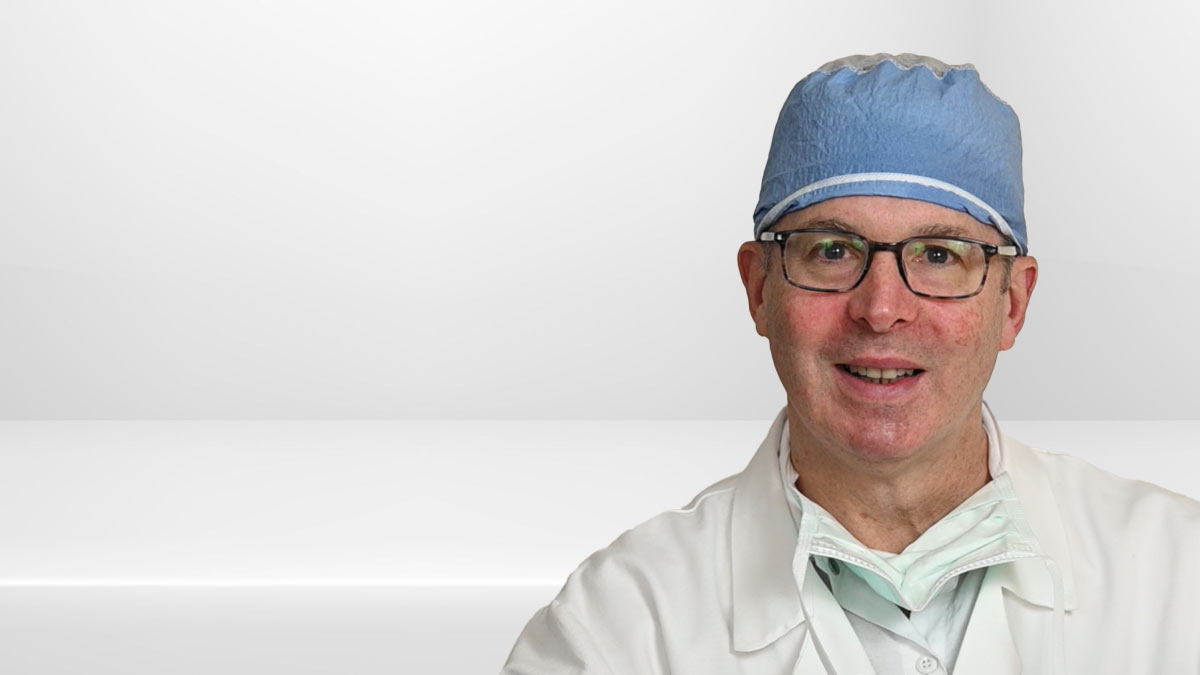Leaky Heart Valve? What Can You Do?

A common question our heart doctors get asked is "Can I do anything to prevent a leaky heart valve or anything to keep it from getting worse?" Dr. Marc Gillinov, Chairman of the Department of Thoracic and Cardiovascular Surgery, explains that a leaky heart valve cannot be prevented and that routine monitoring is a great way to catch if it becomes worse.
Learn more about the Valve Center at Cleveland Clinic
Subscribe: Apple Podcasts | Buzzsprout | Spotify
Leaky Heart Valve? What Can You Do?
Podcast Transcript
Announcer:
Welcome to Love Your Heart, brought to you by Cleveland Clinic's Sydell and Arnold Miller Family Heart, Vascular and Thoracic Institute. These podcasts will help you learn more about your heart, thoracic and vascular systems, ways to stay healthy, and information about diseases and treatment options. Enjoy.
Marc Gillinov, MD:
Hello, I'm Marc Gillinov. I'm Chair of the Department of Thoracic and Cardiovascular Surgery at the Cleveland Clinic. I'm a heart surgeon and my special area of interest is in heart valve disease, specifically performing heart valve repair and replacement when necessary. When people get an echocardiogram, which is an ultrasound of the heart, they often read the report and find that they have a valve that leaks. Now, many valves leak a little bit, and that's actually pretty much normal. A small leak to the mitral valve or tricuspid valve is normal. That's the way God and nature made us. But when the leak gets to be mild or greater, we say that's not completely normal, but is it dangerous? It depends on how much a valve leaks. If you have a mild or mild to moderate leakage of a valve, that does not require surgery. We don't operate for mild to moderate leakage because if you have mild to moderate leakage, you can do whatever you want and it's not going to hurt you and it's not going to hurt your heart.
What should you do if you have mild to moderate leakage? You should get an echocardiogram every year or so just to check it, and otherwise do whatever you want. Your exercise level and your diet will not change how much the valve leaks, meaning you don't have to worry if my valve has a small leak, a moderate leak, mild leak, will my activity make it worse? And the answer is no. Your activity will not make it worse. Stay active, keep exercising. Eat a good diet for your arteries, but don't worry that anything you do will affect your valve because your valve doesn't care what you do. Do follow-up, get an echo once a year or so.
Now, if you have had a valve repair or a valve replacement, you should get an echo every year as well. It is reasonably common to have mild leakage after a valve repair, especially as you get 1, 2, 3, 5, 10 years out. Same answer to the question, what should I do about my mild valve leakage? The answer is keep getting echoes every year. But otherwise, stay active. There are no medicines that make it better. There are no medicines that make it worse. Same thing for your diet. Of course, be smart about your diet. Eat well. Choose a Mediterranean diet for your arteries. Exercise every day, and don't worry about your valve. If you have a small leak, the odds are very high it will not progress.
Announcer:
Thank you for listening. We hope you enjoyed the podcast. We welcome your comments and feedback. Please contact us at heart@ccf.org. Like what you heard? Subscribe wherever you get your podcasts, or listen at clevelandclinic.org/loveyourheartpodcast.

Love Your Heart
A Cleveland Clinic podcast to help you learn more about heart and vascular disease and conditions affecting your chest. We explore prevention, diagnostic tests, medical and surgical treatments, new innovations and more.


